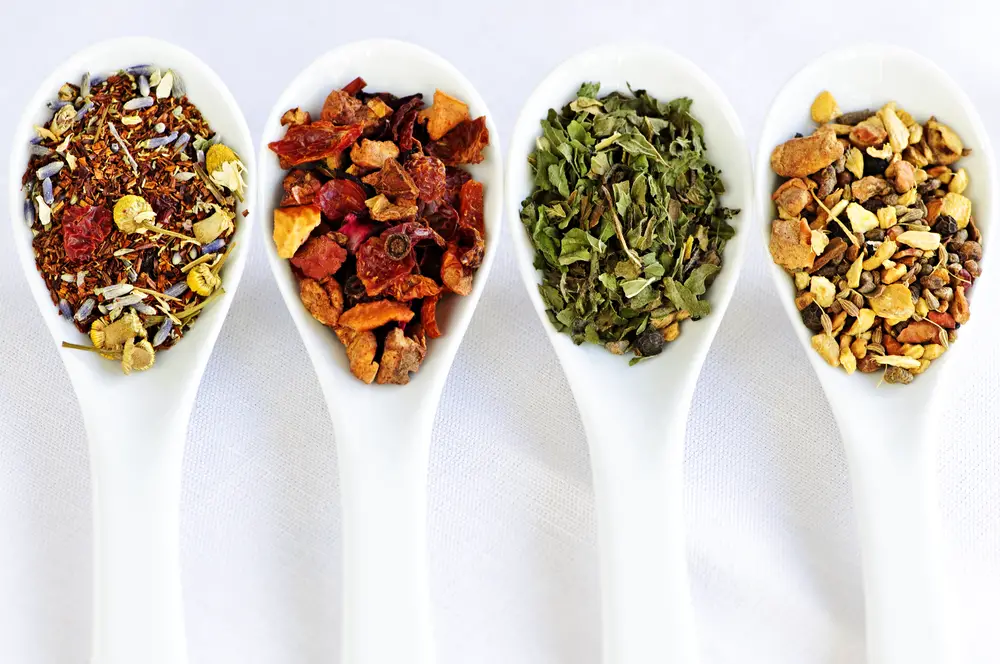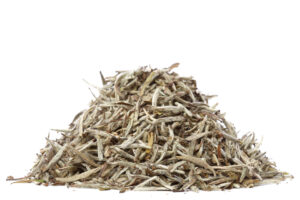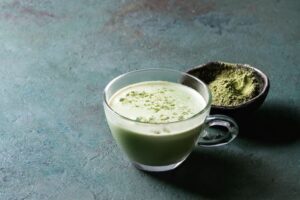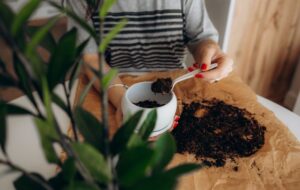One of the great benefits of tea is the ability to relax frazzled nerves by creating a warm and soothing moment, and these particular herbal teas for anxiety and stress are no exception.
When it is just you and the cup in front of you, all stress seemingly melts away as your palate digests the plethora of flavors in your hands.
Since green tea and others are available in many herbal varieties, there is a flavor for each palate and stress level.
Below we will discuss seven of the best tea choices to help you reduce anxiety and stress. One last thing before we get into things: these teas are not cures for anxiety or mental health issues.
They are simply there to help support your system. If you are suffering from mental health issues, please talk to your doctor to explore your options for recovery and management.
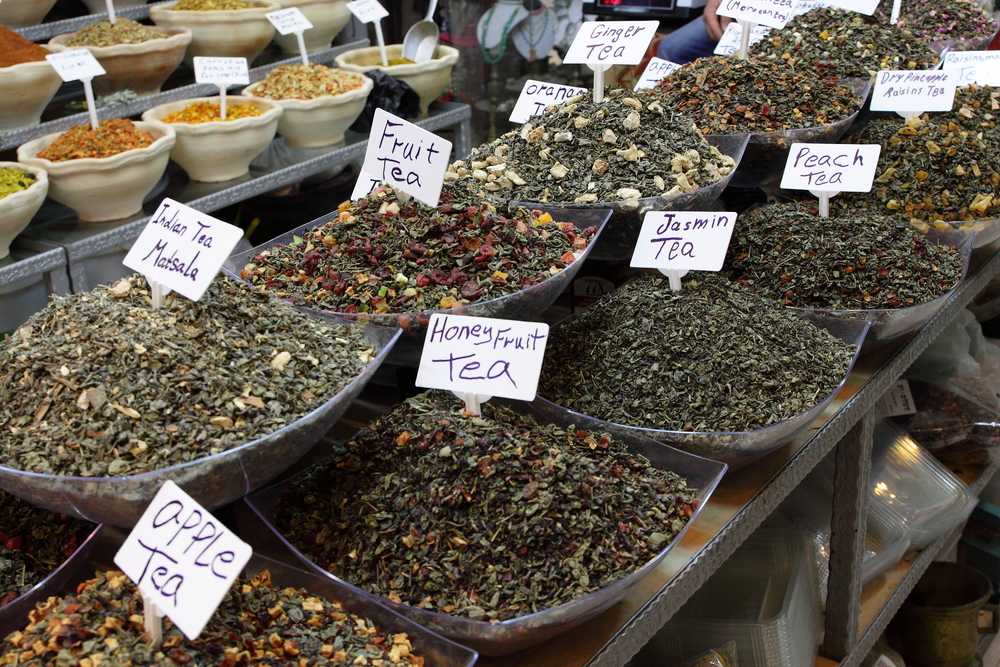
Does Drinking Tea Help with Anxiety?
While research into this area is not particularly deep (yet), there have been several studies carried out to discover whether or not drinking herbal teas helps with anxiety and depression levels.
The answer seems to be a tentative ‘yes,’ but as with mental health issues, data can be difficult to quantify.
What we do know is that drinking herbal teas does change your body chemistry in some way. For instance, researchers have found that drinking tea reduces your body’s level of cortisol, which is a stress hormone.
Typically, a lot of the evidence comes from epidemiological studies, which broadly show positive effects on mood and cognitive function.
If you look for it, you can see the many links between drinking green and herbal teas and better mental health.
But again, never use it as your sole means of treatment if you have such a condition – instead, just use it to help with your other practices.
Ok, onto the teas!
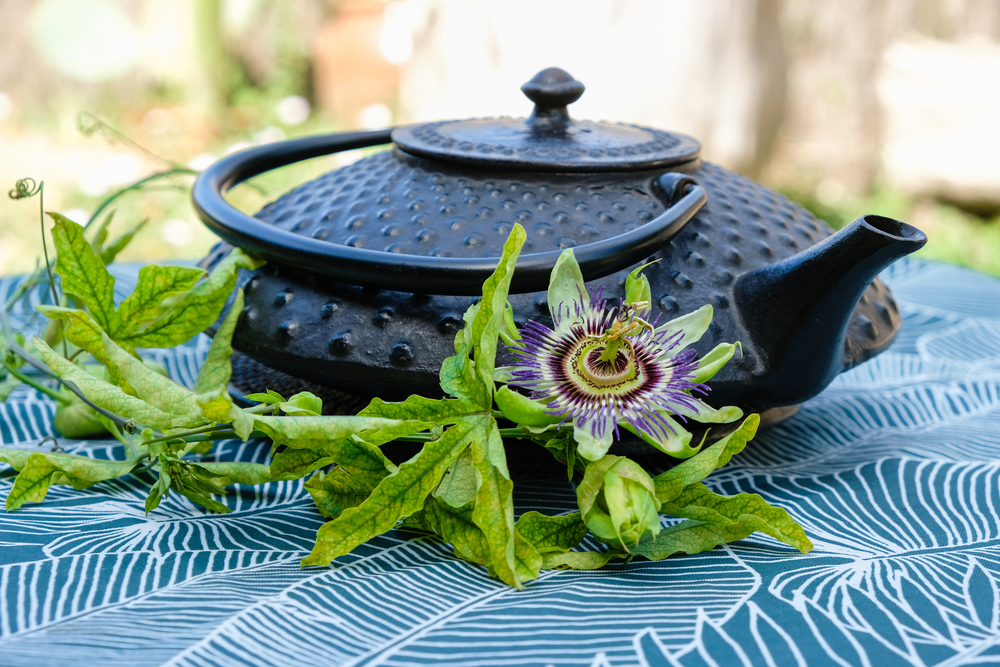
1) Passionflower tea
Passionflower tea is made using the dried leaves of the Passiflora Incarnata flower, a member of the 500-strong Passiflora plant family.
In a study conducted in Phytotherapy Research, it was found that Passionflower tea has a marked sedative effect that improved the sleep cycle.
Another study also showed that the tea reduced preoperative anxiety, indicating that this tea can help reduce anxiety and stress. Those who enjoy Passionflower tea can look forward to a night of solid sleep and a calmer mood.
The tea tastes like green tea, boasting a pleasant grassy palate with a mild spicy undertone. The longer the tea is left to steep, the more the flavor shifts from herbal to toasted with a light bitterness that can be tempered by honey.
The next time your mind needs to calm down, try a cup of this delicious herbal to set your anxiety and mental health at ease.
We recommend: Buddha Teas Passionflower Tea found easily online.
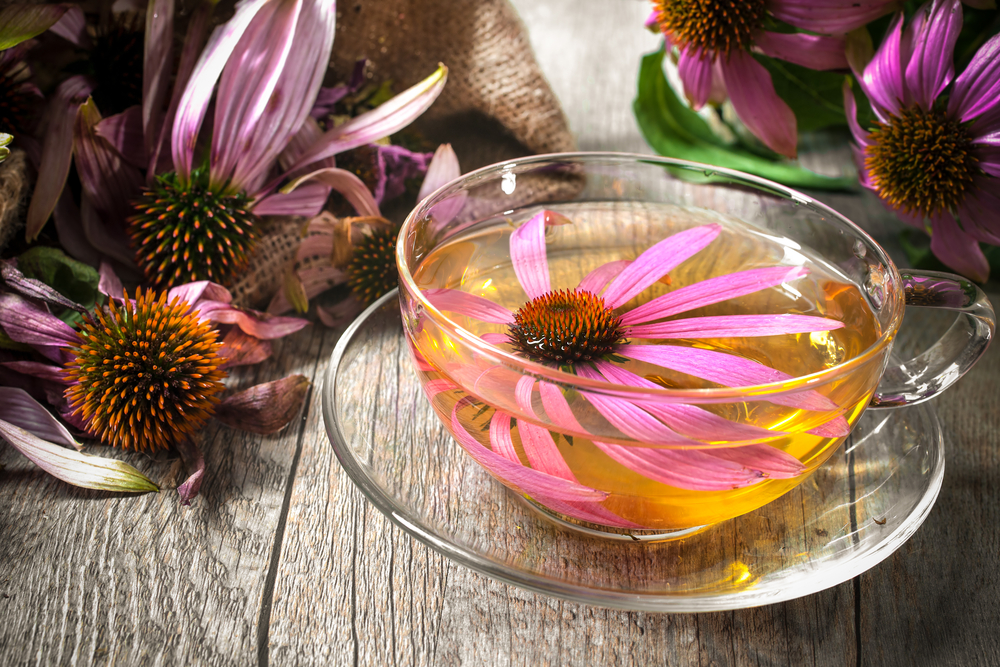
2) Echinacea tea
Echinacea is an all-around powerhouse of a herb and has long been recommended as an immune booster and natural remedy to stave off colds and flu. However, it also has a calming effect that can help reduce stress and anxiety.
According to Healhyfocus.org, the tea has fewer side effects when compared with over-the-counter medicines used for stress and anxiety, making it an excellent alternative remedy for those who prefer a natural approach to calm their minds.
The flavor profile of this tea is exceptionally strong with floral tones.
However, due to its strength, the tea may have a slight sedative effect on the lips resulting in a light but pleasant tingle. If the tea has been diluted with other herbs, this effect may be less noticeable.
Also the taste is a bit too bitter; it can be mixed with sweeter tastes like hibiscus or pomegranate tea while still packing a soothing punch.
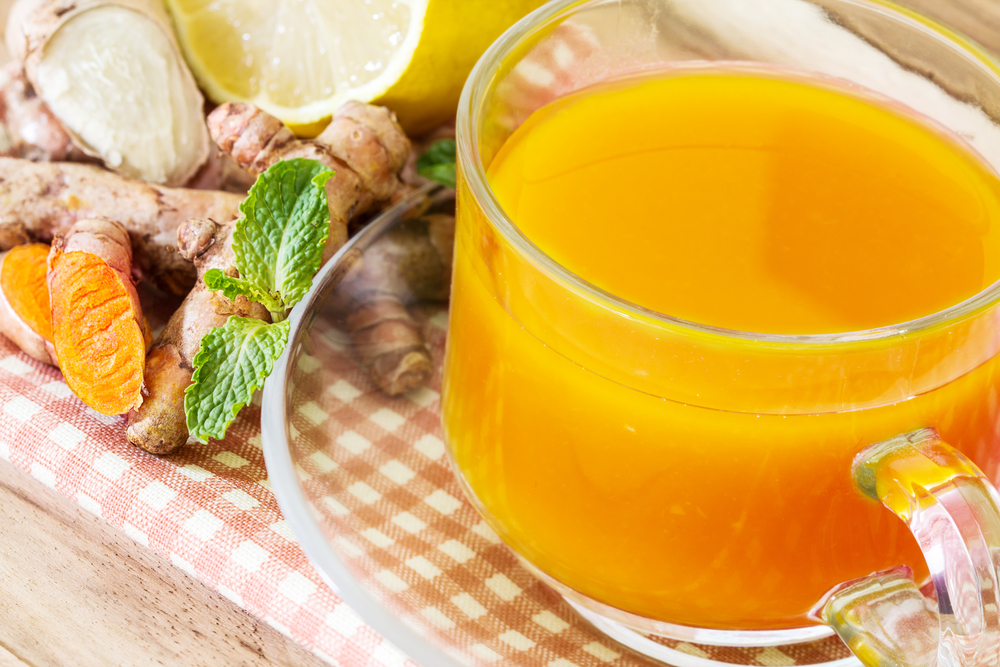
3) Turmeric tea
Traditionally used in Indian cooking, turmeric root is known for adding a vibrant yellow tone to food as well as lending a bitter undertone where dishes need it. However, it can also be used to boost immune systems, and it is a wonderful sleeping aid when it comes to anxious minds.
According to mentalhealthfood.com, turmeric root has an active ingredient called curcumin that boosts highly effective antidepressant qualities on par with prescription medications such as fluoxetine.
However but that’s quite the claim, so always be skeptical of claims like that unless they’re backed up by hard science.
A study conducted on the efficacy of turmeric in treating depression concluded that this herbal remedy is effective because it can inhibit monoamine oxidase. This enzyme may cause depression when present at high levels.
Also, the root can also help boost serotonin and dopamine levels in the brain, two important factors in treating depression and anxiety.
So how can you reap these benefits? Enjoy a cup of turmeric tea, also known as golden milk. Simply infuse warm milk with turmeric and add a dash of honey to curb the bitterness. Cinnamon can also be added to boost the flavor and add a familiar warm note.
Alternatively, turmeric can also be brewed into a traditional tea by adding a teaspoon of the powder to four cups of boiling water.
Note: Turmeric is most effective when consumed hot and with a fat such as full cream milk or coconut oil.
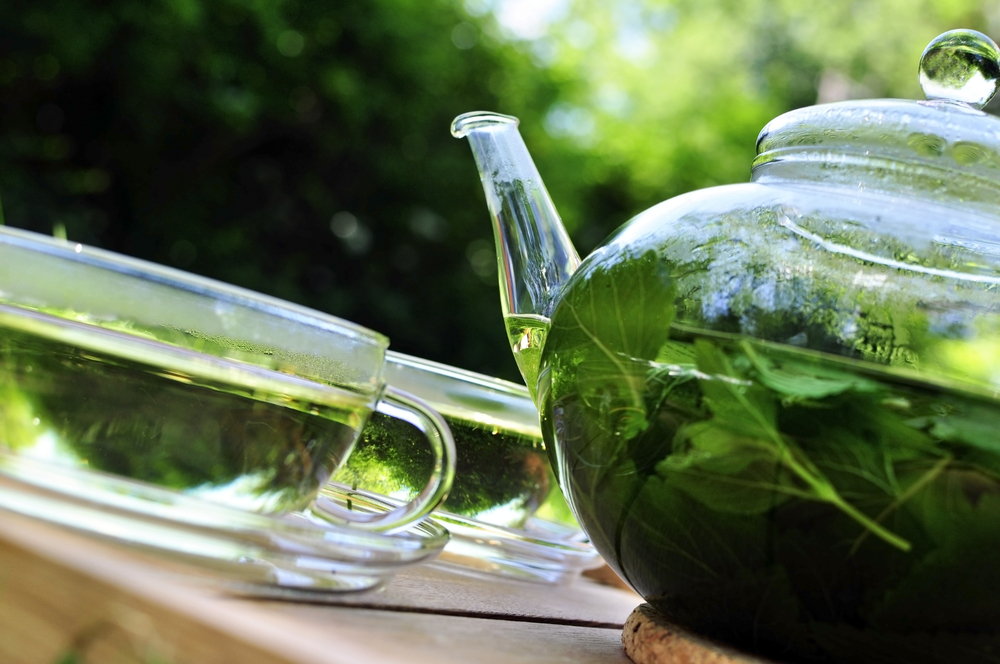
4) Lemon Balm Tea
One of the more palatable herbs, lemon balm is known for its citrus scent, making it a popular addition to essential oil mixes and potpourri. It is often mistaken for mint due to the similarity in its leaves, and it is a member of the same plant family, but it does not exhibit a minty flavor.
Above and beyond its pleasant aroma, the herb is also known for its soothing qualities and is often used as a sleep aid or to reduce anxiety. Studies have shown that when taken as a water-based drink, there was a noticeable boost in mood and mental function. This means that lemon balm, when taken as a cup of tea can help set minds at ease and have a calming influence on the soul.
To enjoy a cup of citrus relaxation, steep a few spoons of dried lemon balm leaves in hot water. The amount of leaves used depends on taste, and the brew can be sweetened with a bit of honey for a sweetly soothing cup of lemon-flavored bliss.
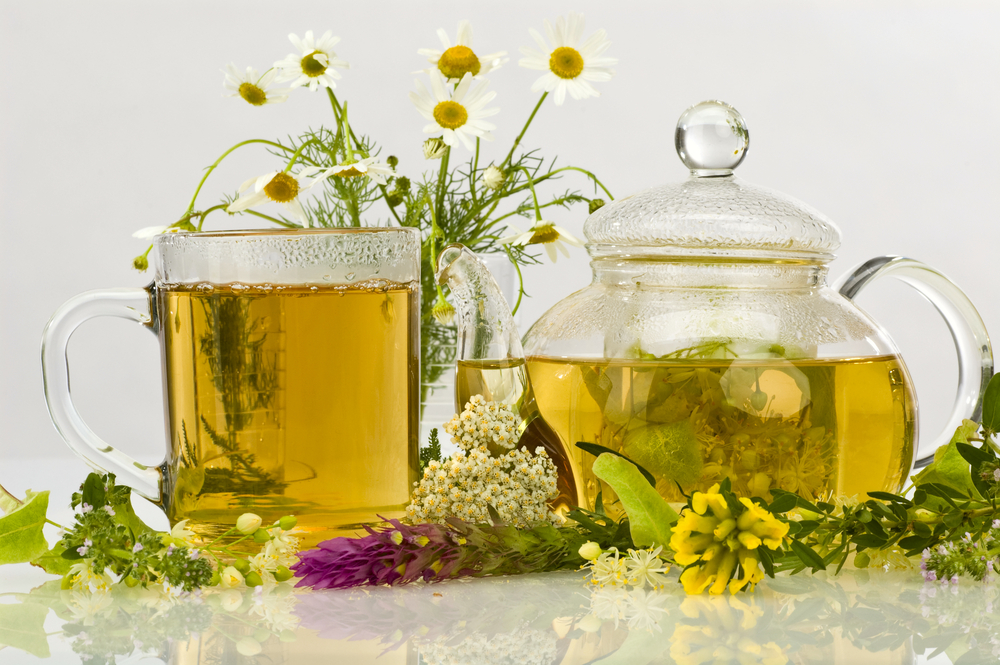
5) Chamomile tea
The true champion of relaxing teas, Chamomile is the ultra-famous cousin in the calming herb family.
Resembling the humble daisy, this white flower has been used medicinally since Roman times. In modern times, it is a popular sleep drink since it helps curb insomnia and can improve anxiety levels, as shown in a recent study.
The herb also boasts many auxiliary benefits, including antifungal and immune-boosting properties.
The fruity-floral flavor of the tea has helped boost its popularity since it can be enjoyed independently without sweeteners or additional flavors to make it more palatable.
It is also more widely available and can be found in both loose-leafed and bagged varieties, making it much more accessible to even to most novice tea drinkers.
The next time you feel anxious or need a night of full and restful sleep, reach for a cup of chamomile tea and allow it to do what tea does best: create a blissful moment with just you and your favorite cuppa.
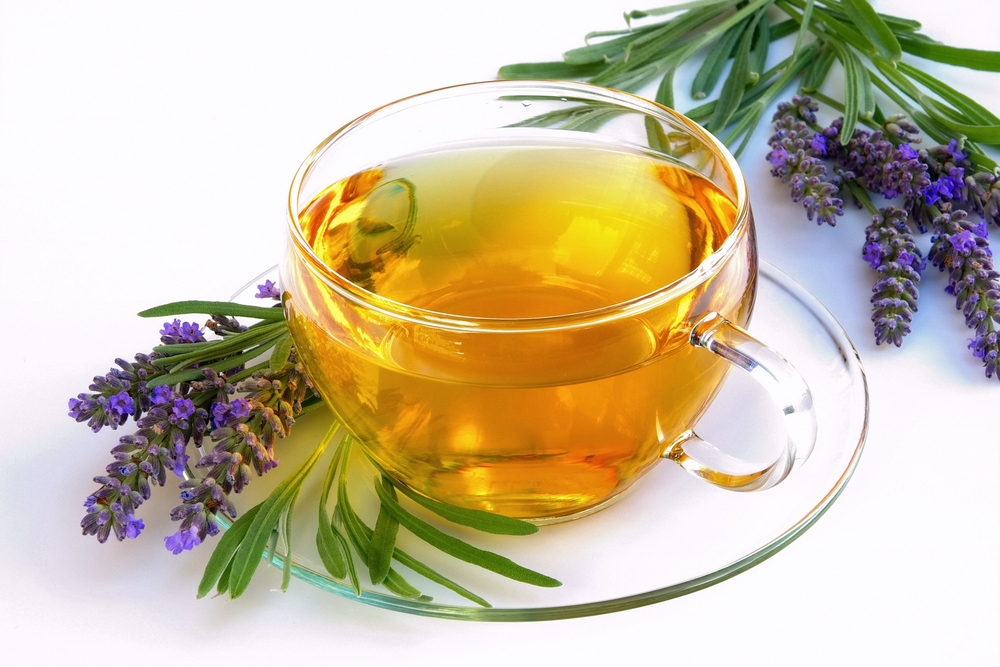
6) Lavender Tea
Lavender oils are known and widely used for their therapeutic properties, but it is also a popular herbal tea option as well.
The tea is made by brewing the buds of the Lavandula angustifolia plant and steeped in hot water to help improve sleep, boost your immune system, reduce stress, curb anxiety and increase overall good health and well-being.
The taste of lavender tea is fragrant, with hints of rosemary, mint, and other herbal notes. However, this does depend on the blend, as some lavender teas have a smoky or earthy flavor, depending on where it was grown.
To prepare your lavender tea, you’ll need to use two teaspoons of the flowers for every eight ounces of water.
Steep in hot water for 8-10 minutes, and then you’re done! If you find the taste a little harsh, you can soften it with honey. Furthermore you can drink it throughout the day to help with stress relief or have some an hour before bed to help you relax.
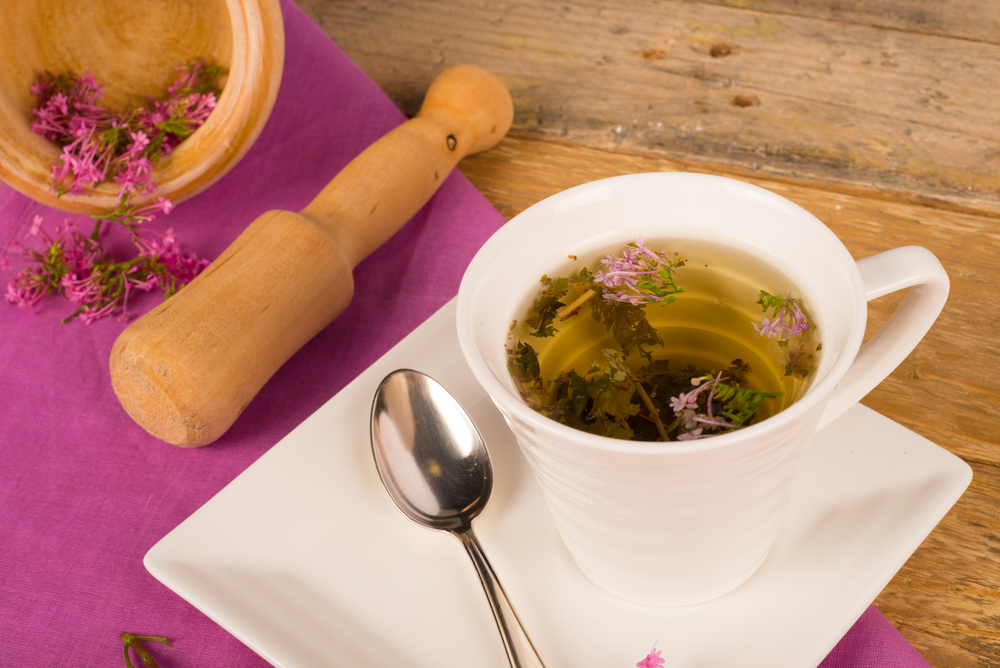
7) Valerian Root Tea
Valerian tea is one of the most popular teas that is drunk to help with stress relief and the slight reduction of blood pressure as well.
Many people use it long-term and opt for a warm cup of valerian tea before they go to bed or if they are having a tough day.
As one of the best teas for the reduction of stress, valerian root has a slight sedative effect and is a popular herbal tea when it comes to sleep.
Like other herbal teas and roots in this category, valerian tea has an earthy taste that has been grown in the wild. And, as with other teas, you can go ahead and add some honey for a little more sweetness in the mix.
To brew your cup of valerian root, all you need to do is put the roots or leaves into hot water for around ten minutes before serving.
Best Teas for Anxiety -Take it Easy
Whether it’s green tea, valerian root, rose petals, or any of the others on the list, you stand a chance to improve your mental and physical health by drinking herbal tea to reduce your anxiety.
While none of the calming teas on this list are meant for a cure, some people have found they help.
A healthy brain and mind lead to a healthy body, so we help that the above choices will be able to help you in your journey to relax better and rest better still.
Namaste

